International
More than 480 arrested during protests in Panama for Social Security reforms
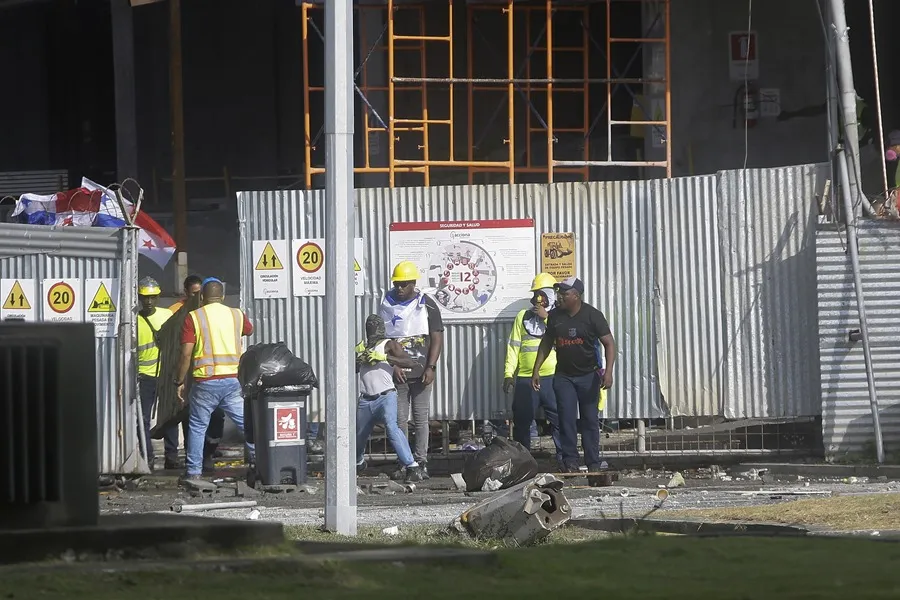
More than 480 people were arrested this Wednesday in Panama during violent protests in rejection of a Social Security reform project, triggering clashes between the police and the demonstrators that left at least 16 injured.
The director of the National Police (PN) of Panama, Jaime Fernández, reported in a press conference that there are “more than 480 people detained”, after an “unprecedented escalation of violence” this morning, which left a balance of damage “to the national police and its resources” in the amount of “267,000 dollars”.
In addition to being injured, “16 units of the National Police”, two of which hit with blunt objects (blocks, screws and steel bars among others) thrown by the demonstrators from the top of a tower under construction of a public hospital for children, where they entrenched themselves.
The Single Union of Workers in the Construction and Similar Industry (Suntracs) blocked a section of the maritime avenue, one of the main arteries of Panama City, and other key points of the capital in rejection of the bill that reforms the Social Security Fund (CSS), under discussion in the Legislature.
Previously, the police director had pointed out, in statements to journalists, that “they have had to set up a special prison” because they are going to “judicialize” “all” the demonstrators, including the “union leaders”, within the framework of respect for due process, he said.
The president of Panama, José Raúl Mulino, described it as “intolerable” that the work of the pediatric hospital is used as a “barricade of union terrorists to subvert public order” and asked for the action of the Prosecutor’s Office with “all the weight of the law.” After that, the Prosecutor’s Office initiated an “ex officio investigation” for these acts.
For his part, Saúl Méndez, the leader of Suntracs – the most powerful union in the country – said in a video broadcast by his official channels that his protest was “peaceful” and regretted that he was “repressed” in the area of the hospital under construction, which was “besieged”.
Student protests have also been reported in front of the University of Panama, which canceled classes for this Wednesday.
On Wednesday, Parliament discussed two bills (independent of each other) on the Social Security Fund of Panama, key to the economic future of that entity, submerged for years in an administrative and financial crisis, which could liquidate one of the two pension subsystems.
The deputies have already approved the first of them that authorizes the Executive the transfer of 91 million dollars as “extraordinary funds” to “partially reinforce the costs” of the retirements corresponding to this month of February, according to official information.
And they discuss in the second of the three mandatory debates, another bill, broader and of greater importance, that reforms Panamanian Social Security after months of discussion by blocks in the parliamentary health commission in the face of the difficulties requested by the Panamanian president and other social sectors.
This bill is a proposal of the Executive made in consensus by dialogue tables with economic, trade union and social sectors. The original document included a three-year increase in the retirement age – up to 65 for men and 60 for women – and 3% of the employer’s quota, among others.
However, the deputies of the commission overturned the article that raised the retirement age, one of the points most rejected by the parliamentarians, unions and the population, and increased the annual contribution of the Executive to 1.4 billion dollars compared to the 1.2 billion dollars proposed by the Government.
The hemicycle, composed of 71 seats, will hold two rounds of discussions in this second phase with half an hour of pleading for each deputy, so the debate could last approximately two weeks, according to an official source told EFE.
This proposal to change Social Security has raised controversy in Panama with some demonstrations in the streets in recent months, a wide public debate and requests for specific modifications by private companies.
International
Colombia: Search continues for missing limb of italian scientist found dismembered
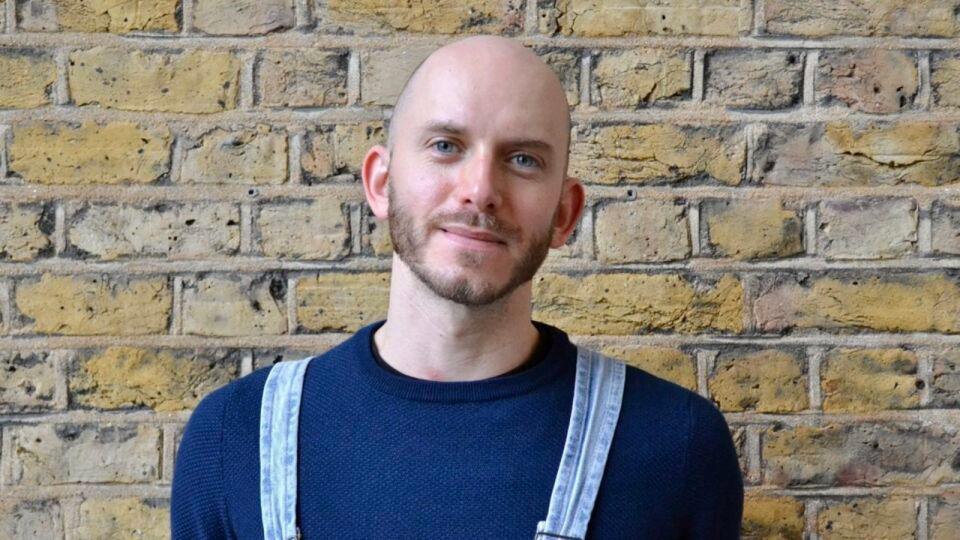
Rescue teams and Colombian authorities continued their search on Tuesday for the missing left leg of Italian biologist Alessandro Coatti, whose dismembered body was found in the Caribbean city of Santa Marta.
Coatti, 42, was a molecular biologist who had been traveling through South America after working for eight years at the Royal Society of Biology (RSB) in London.
He had been staying in a hotel in Santa Marta since April 3 and was later reported missing. His dismembered body began to be discovered on April 6, when parts were found inside a suitcase abandoned near a football stadium in an area known as Bureche.
“We’re conducting the search along the riverbanks and in the water to identify possible spots where, due to the river’s current, the missing left leg might be located,” Karlotz Omaña García, director of the Magdalena Civil Defense, told The Associated Press. Despite covering a 500-meter radius, the limb was not found.
Authorities have not named any suspects or shared possible motives. A reward of more than $11,000 has been offered for information leading to those responsible for the foreign scientist’s murder.
Police continue to reconstruct Coatti’s final movements. According to Colonel Jaime Ríos, head of the Santa Marta Metropolitan Police, the Italian biologist arrived in Colombia in January and had visited several locations, including Medellín, before traveling to Santa Marta.
Security footage shows Coatti was in downtown Santa Marta the night before his body was found, the colonel added.
Santa Marta, a popular Caribbean tourist destination, is known for its clear beaches. Police believe Coatti may also have visited Tayrona Park, a protected coastal area located about 34 kilometers (21 miles) from the city center.
International
MPV Denounces Electoral Blockade as Secretary-General is Disqualified for May Elections
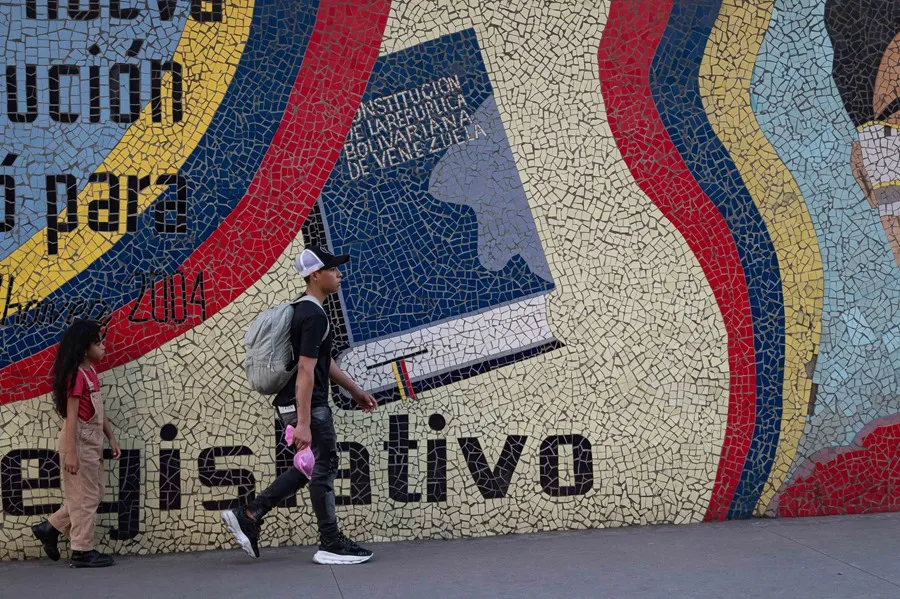
The anti-Chavista party Movement for Venezuela (MPV) denounced on Monday that it was “prevented” from submitting its candidates for the regional and legislative elections on May 25, elections rejected by opposition leaders Edmundo González Urrutia and María Corina Machado.
“MPV, being an active and recognized party in the National Electoral Council (CNE), was prevented from submitting candidates for the current electoral process,” stated the political group through a communiqué on X.
Additionally, the group denounced that its Secretary-General, Simón Calzadilla, was “suddenly disqualified,” as the opposition leader warned last Friday. He also explained that he attempted to access the CNE’s automated candidate submission system but, as he added, the portal showed that he was not authorized to create a user and submit the MPV candidates.
For the party, its “strong decision” to participate in the May elections “highlighted the true nature of this electoral process,” which it described as “extremely flawed.”
International
Maduro Plans Major Workers’ March on May 1st to Defend Venezuela’s Freedom
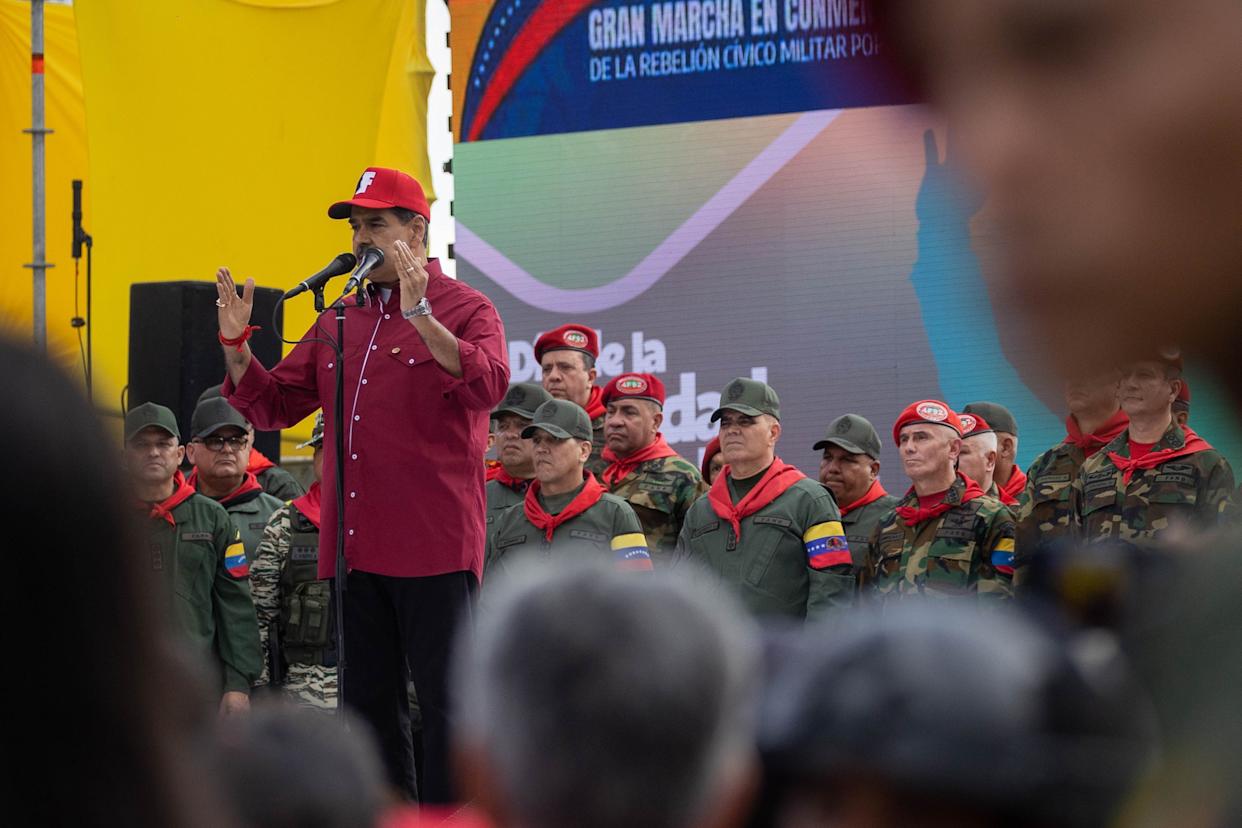
Nicolás Maduro, who swore in for a third term in January following his controversial re-election, called on Monday for the “working class” and the “armed people” to gather for a concentration on May 1st for peace, as part of the celebration of International Workers’ Day.
“Let’s have a powerful march of the working class, the combat bodies, and the Bolivarian National Militia in all the cities of the country, from end to end, working class and armed people in the streets shouting for peace,” said the chavista leader in a broadcast on the state channel Venezolana de Televisión (VTV), surrounded by military authorities.
He also stated that Venezuela is more armed than “ever” to “defend the sacred dream of a free homeland, the sacred soil of a heroic land, Venezuela.”
Maduro called on all military personnel to “stay in shape” with a “deployment capacity” and also to have “a very clear view of the entire national territory.”
-
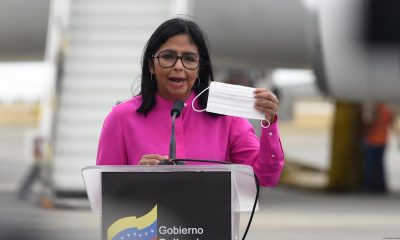
 International3 days ago
International3 days agoVenezuela accuses Guyana of “warlike intentions” after UK defense deal
-

 Central America4 days ago
Central America4 days agoSpanish Ex-Congresswoman Calls for ‘Bukele-Style’ Security Policies in Europe
-
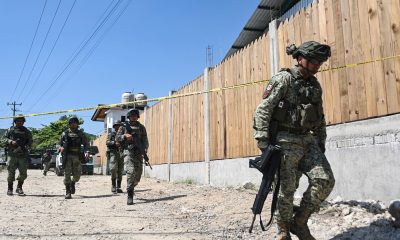
 International4 days ago
International4 days agoTrump Authorizes Military to Take Control of Federal Land Along U.S.-Mexico Border
-

 International3 days ago
International3 days agoNightclub Collapse in Dominican Republic Claims 226 Lives
-

 Central America2 days ago
Central America2 days agoHonduran Police Offer $135K for Tips Leading to the Arrest of Romeo Vásquez
-

 International2 days ago
International2 days agoMaduro Plans Major Workers’ March on May 1st to Defend Venezuela’s Freedom
-

 Central America17 hours ago
Central America17 hours agoPetro questions Ecuador’s vote, cites reports of military control and arrests
-

 International2 days ago
International2 days agoMPV Denounces Electoral Blockade as Secretary-General is Disqualified for May Elections
-

 International17 hours ago
International17 hours agoColombia: Search continues for missing limb of italian scientist found dismembered















